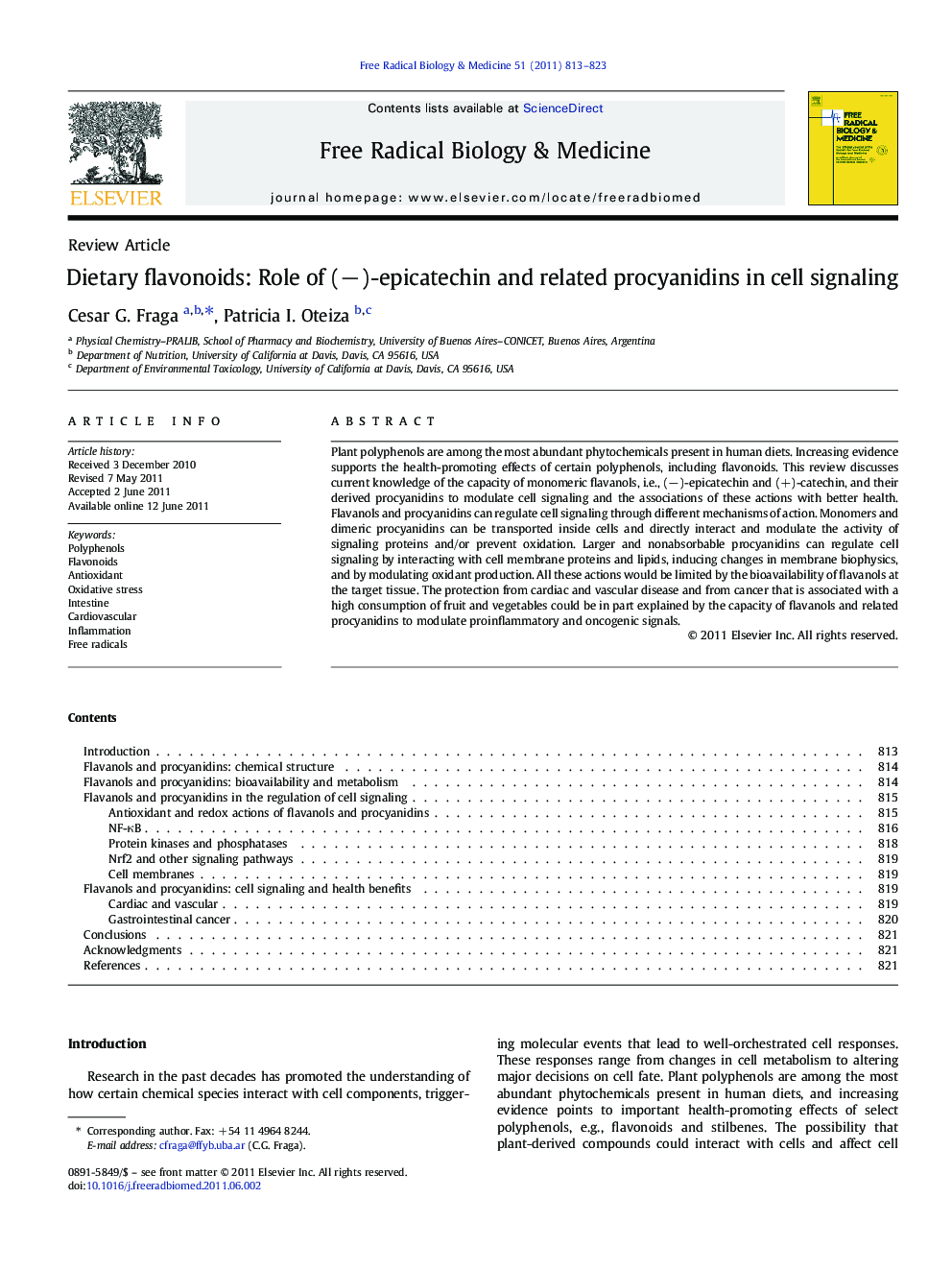| Article ID | Journal | Published Year | Pages | File Type |
|---|---|---|---|---|
| 10738450 | Free Radical Biology and Medicine | 2011 | 11 Pages |
Abstract
Plant polyphenols are among the most abundant phytochemicals present in human diets. Increasing evidence supports the health-promoting effects of certain polyphenols, including flavonoids. This review discusses current knowledge of the capacity of monomeric flavanols, i.e., (â)-epicatechin and (+)-catechin, and their derived procyanidins to modulate cell signaling and the associations of these actions with better health. Flavanols and procyanidins can regulate cell signaling through different mechanisms of action. Monomers and dimeric procyanidins can be transported inside cells and directly interact and modulate the activity of signaling proteins and/or prevent oxidation. Larger and nonabsorbable procyanidins can regulate cell signaling by interacting with cell membrane proteins and lipids, inducing changes in membrane biophysics, and by modulating oxidant production. All these actions would be limited by the bioavailability of flavanols at the target tissue. The protection from cardiac and vascular disease and from cancer that is associated with a high consumption of fruit and vegetables could be in part explained by the capacity of flavanols and related procyanidins to modulate proinflammatory and oncogenic signals.
Keywords
Related Topics
Life Sciences
Biochemistry, Genetics and Molecular Biology
Ageing
Authors
Cesar G. Fraga, Patricia I. Oteiza,
